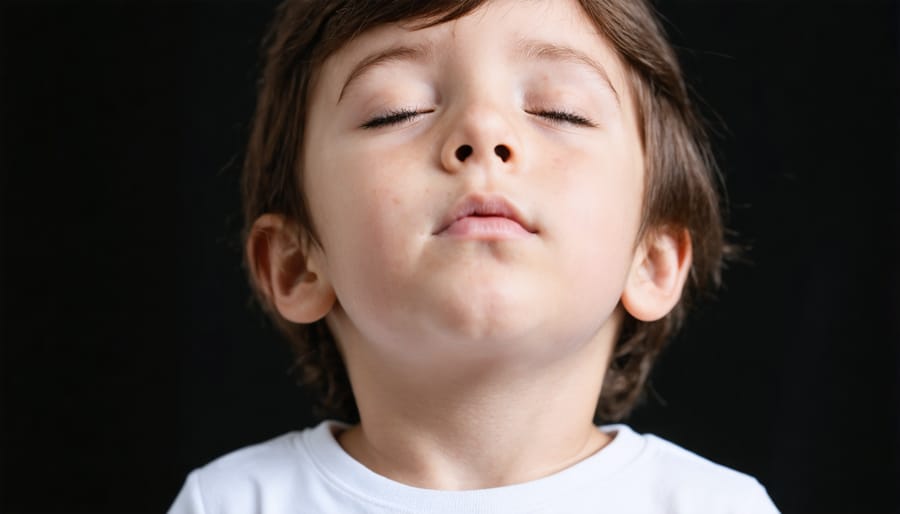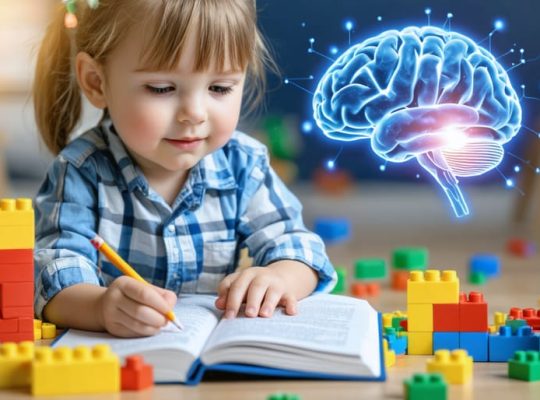Teach children deep breathing exercises to calm their mind and body during stressful moments. Help kids identify and label their emotions using age-appropriate tools like emotion charts or feeling wheels. Encourage regular physical activity and playtime to release tension and boost mood. Model healthy coping strategies like talking through problems, seeking support, and practicing self-care.
Emotional Regulation
Recognizing Emotions
Teaching children to recognize and name their emotions is a crucial first step in developing healthy coping skills. Start by modeling emotional awareness, openly discussing your own feelings and encouraging children to do the same. Help them build an emotional vocabulary by introducing age-appropriate terms for various emotions, such as happy, sad, angry, scared, and excited. Use visuals, like emotion charts or cards, to help children identify and label their feelings. Engage in activities that promote emotional understanding, such as reading stories about characters experiencing different emotions or playing games that involve expressing and guessing feelings. By fostering a safe and supportive environment for emotional expression, children can develop a strong foundation for managing their emotions effectively.
Calming Strategies
When children feel overwhelmed, simple calming strategies can help them regain a sense of peace. Deep breathing is a powerful tool – encourage them to take slow, deep breaths, focusing on the sensation of air moving in and out. Counting exercises, like counting to ten or counting objects in the room, can also shift their attention and promote relaxation. For younger children, creating a designated “calm-down corner” filled with soothing items like soft pillows, stuffed animals, and calming sensory toys can provide a safe space to process emotions. Encourage them to visit this corner whenever they need a moment to reset. Remember, the goal is to offer a supportive, non-judgmental presence as they learn to navigate their feelings. With practice and patience, these calming strategies can become valuable lifelong coping skills.

Problem-Solving
When children face challenges, a step-by-step problem-solving approach can help them build resilience and overcome obstacles. Start by encouraging your child to identify the problem clearly. Ask them to describe the situation, their thoughts, and their feelings. Next, guide them in brainstorming potential solutions. Encourage creative thinking and avoid judging ideas at this stage.
Once they have a list of options, help them evaluate each one by considering the pros and cons. Ask questions like, “What might happen if you try this?” or “How would this solution make you feel?” Together, select the most promising solution and develop a plan to implement it.
Support your child as they put their plan into action, offering guidance and encouragement along the way. After they’ve tried their solution, discuss the outcome together. If it worked well, celebrate their success and reinforce the problem-solving process. If it didn’t work as expected, praise their effort and help them learn from the experience. Together, brainstorm alternative solutions or adjustments to the original plan.
Throughout the process, emphasize that setbacks are opportunities for growth and learning. By consistently applying this problem-solving approach, children can develop a sense of self-efficacy and resilience that will serve them well in the face of future challenges.

Positive Self-Talk
Positive self-talk is a powerful tool that can help children build self-esteem, manage stress, and cultivate a growth mindset. By consciously replacing negative thoughts with positive ones, children can learn to reframe challenges as opportunities for growth and view mistakes as learning experiences. Encourage children to use affirmations like, “I am capable of handling this,” “I am strong and resilient,” or “I believe in myself and my abilities.” These simple yet effective phrases can help children develop an inner voice that is supportive, kind, and encouraging.
Teach children to identify negative self-talk and replace it with positive statements. For example, instead of thinking, “I’m not good at this,” encourage them to say, “I’m learning and improving every day.” Positive self-talk can also help children manage stress by reminding them to take deep breaths, focus on the present moment, and trust in their ability to cope with challenges. By modeling positive self-talk and providing children with a repertoire of affirmations, you can help them cultivate a mindset that fosters resilience, confidence, and emotional well-being.
Seeking Support
It’s essential for children to understand that seeking support is a sign of strength, not weakness. Encourage them to identify trusted adults in their lives, such as parents, teachers, counselors, or family members, whom they feel comfortable talking to when they need help. Explain that these adults are there to listen, provide guidance, and offer support without judgment.
Help children recognize when they might need extra support, such as when they feel overwhelmed, sad, or anxious for an extended period. Teach them to be aware of physical signs of distress, like headaches, stomachaches, or difficulty sleeping, which can indicate underlying emotional struggles.
Encourage open communication by creating a safe and nurturing environment where children feel heard and validated. Regularly check in with them about their feelings and experiences, and be available to listen when they want to talk. Model healthy coping strategies and help-seeking behaviors, so children learn that it’s okay to reach out for assistance when facing challenges.
If a child expresses concerns that may require professional help, such as persistent anxiety, depression, or thoughts of self-harm, guide them towards appropriate resources, such as school counselors or mental health professionals. Remember, early intervention and support can make a significant difference in a child’s mental health and well-being.
Mindfulness and Relaxation
Mindfulness and relaxation techniques can be powerful tools for children to cope with stress and anxiety. Simple practices like deep breathing, where children focus on taking slow, deep breaths in through the nose and out through the mouth, can help calm the body and mind. Visualization exercises, such as imagining a peaceful scene or a favorite place, can also promote relaxation. Encouraging children to engage in mindfulness activities, like paying attention to their senses during a nature walk or focusing on the present moment during a craft activity, can help them stay grounded and manage overwhelming emotions. Progressive muscle relaxation, where children systematically tense and relax different muscle groups, can be a helpful technique for releasing physical tension and promoting a sense of calm. By incorporating these simple practices into daily routines, children can develop valuable skills for managing stress and cultivating inner peace. It’s important to approach these techniques with patience and compassion, allowing children to explore what works best for them in a supportive environment.

Healthy Habits
Developing healthy habits is crucial for supporting youth mental well-being. Establishing a consistent sleep routine, aiming for 8-10 hours per night, allows the brain to recharge and process emotions. Regular physical activity, such as playing sports, dancing, or taking walks, releases endorphins that boost mood and reduce stress. Eating a balanced diet with plenty of fruits, vegetables, whole grains, and lean proteins nourishes the body and brain, providing the energy and nutrients needed to cope with life’s challenges. Encouraging children to adopt these healthy habits sets the foundation for lifelong mental and physical well-being. Parents and caregivers can model these behaviors, create family routines that prioritize self-care, and provide a supportive environment where children feel encouraged to make healthy choices. By focusing on the mind-body connection, we empower youth with the tools they need to navigate stress and build resilience.
Conclusion
In conclusion, equipping our youth with essential coping skills is crucial for their mental health and overall well-being. By teaching children and adolescents healthy ways to manage stress, regulate emotions, and build resilience, we empower them to navigate life’s challenges with confidence and grace. Parents, teachers, and healthcare professionals must prioritize the development of these skills, offering guidance, support, and a safe space for open communication. Remember, it’s never too early or too late to start fostering coping skills in our youth. With love, patience, and a commitment to their well-being, we can help the next generation thrive in the face of adversity, and create a brighter, more hopeful future for all.







